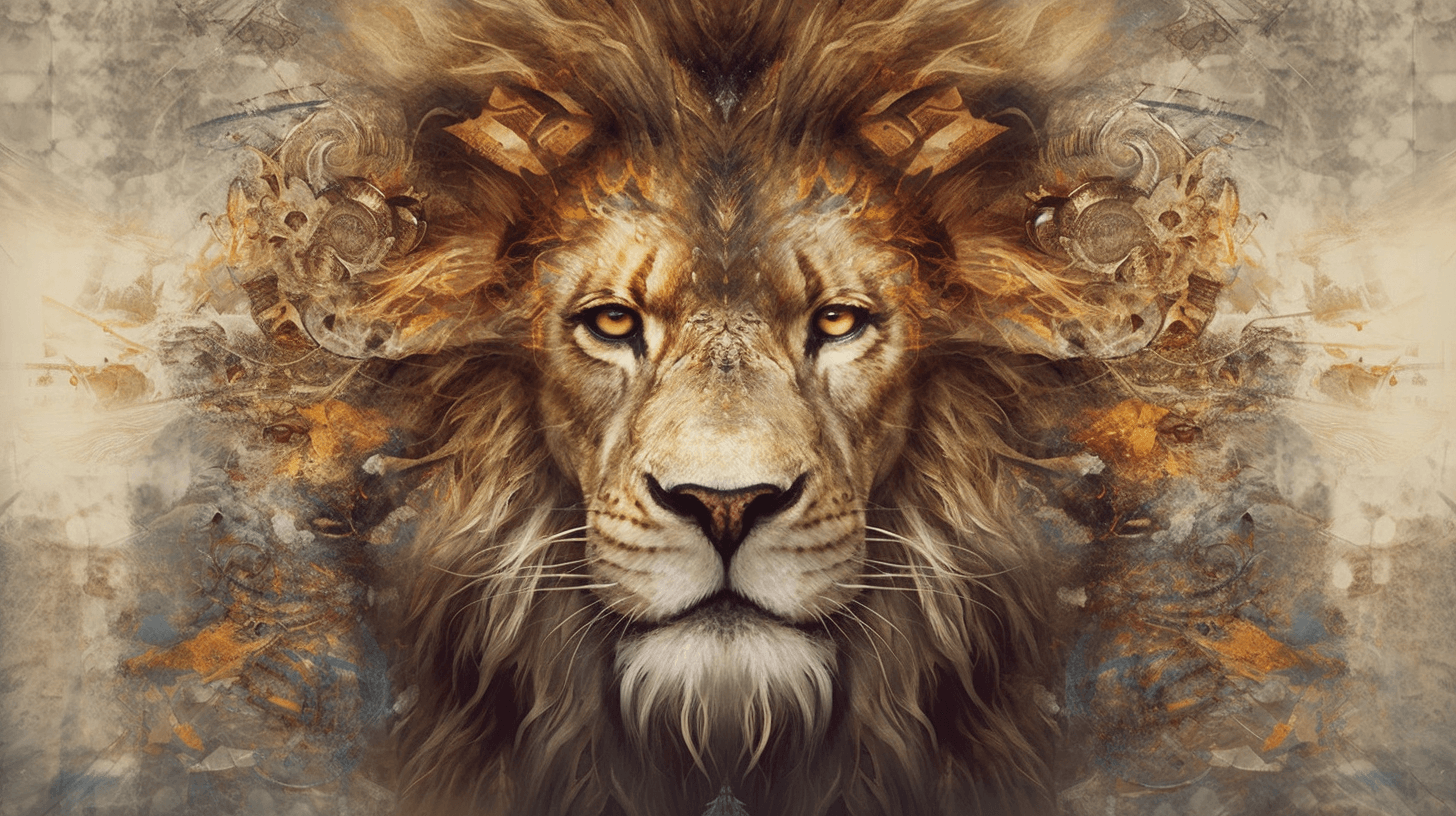The Lion Symbolism
The lion is a potent symbol found in various cultures and traditions around the world. Its symbolism is multifaceted, but here are some common interpretations:
Strength and Courage
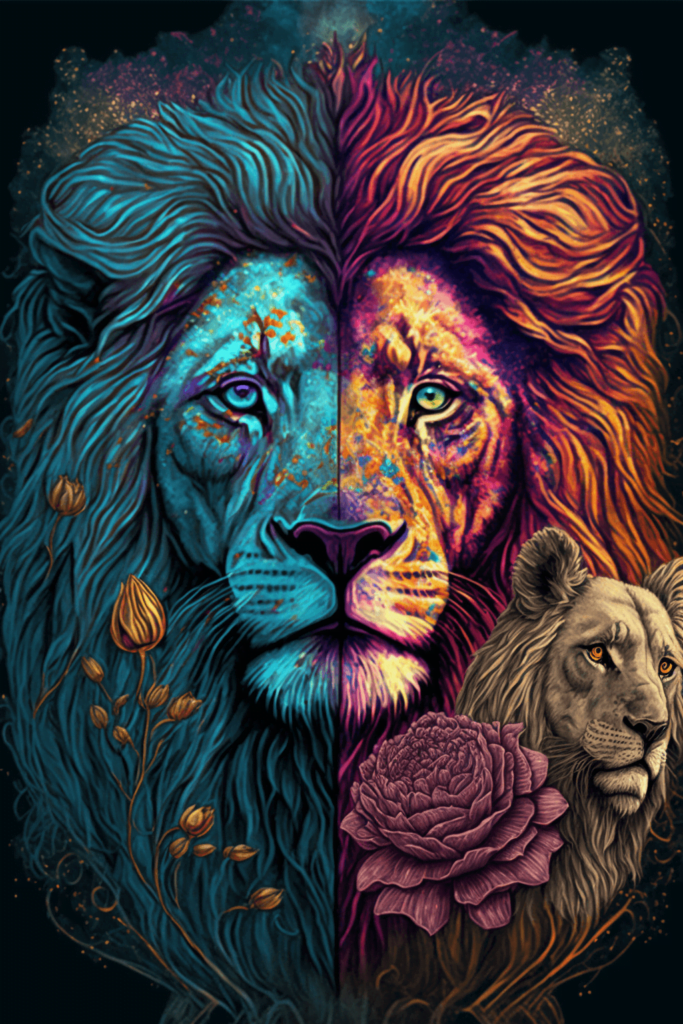
The lion is often seen as a symbol of physical strength and personal courage. Known as the “king of the jungle,” the lion embodies power and majesty.
Authority and Sovereignty
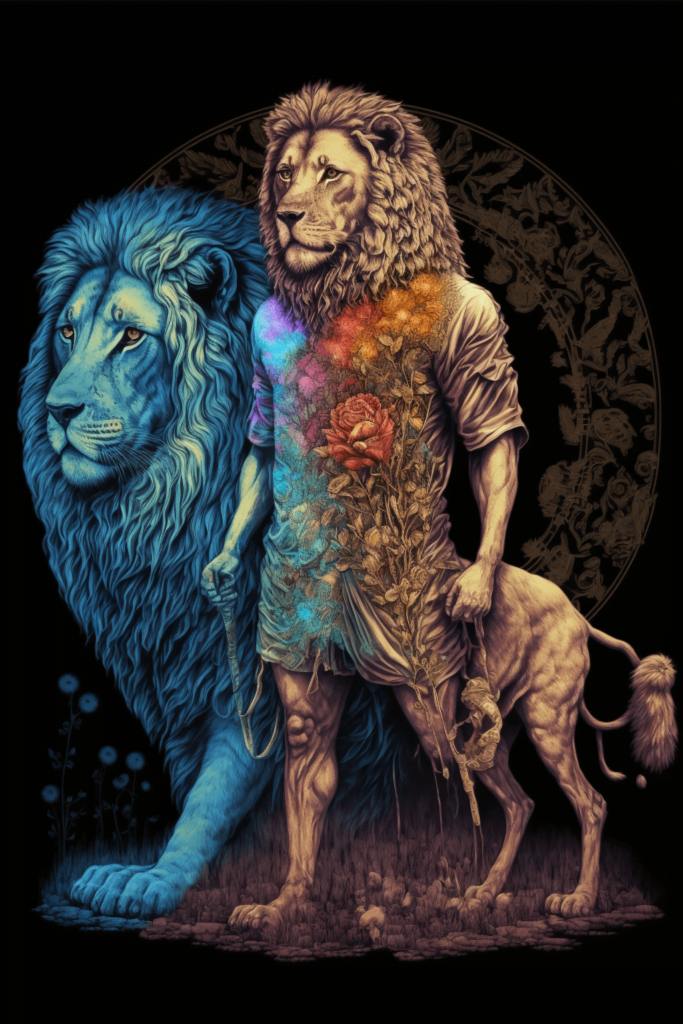
In many cultures, the lion is a symbol of royalty and leadership. It often appears in coats of arms and other heraldic symbols.
Protection
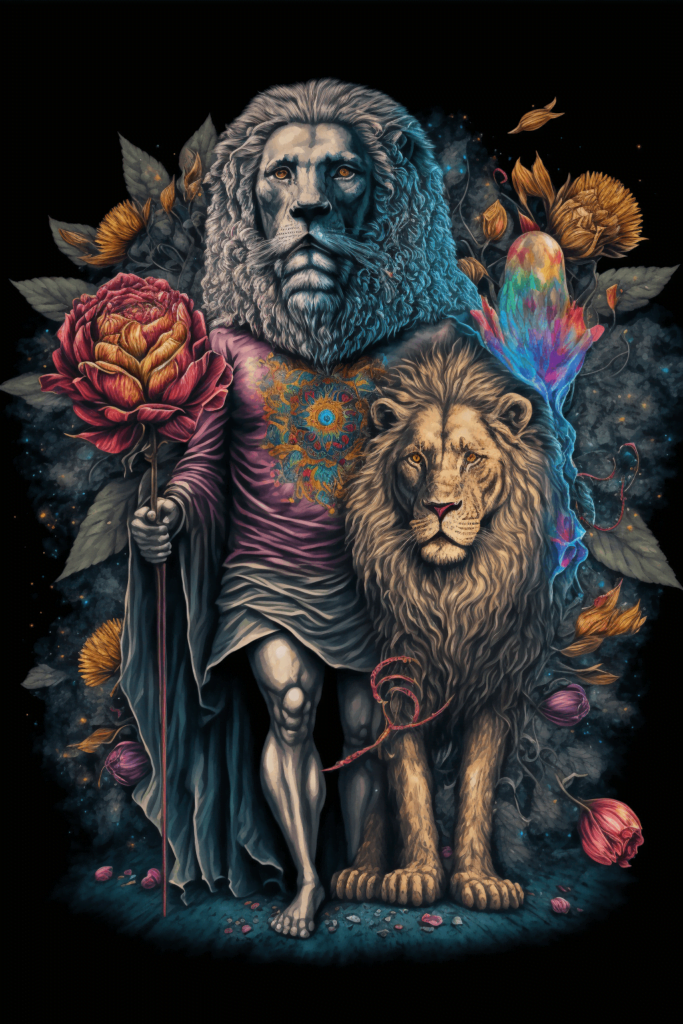
Lions are seen as protectors in several cultures. Statues of lions often guard entrances to cities, temples, and homes.
Wisdom and Justice
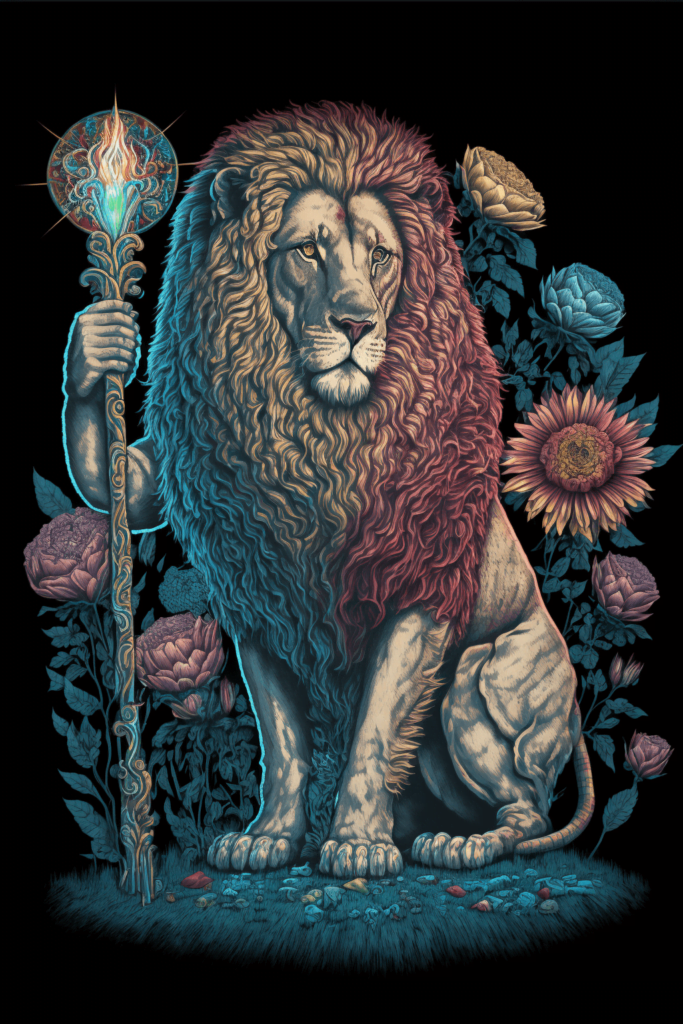
In some traditions, the lion also symbolizes wisdom and justice, using its power with understanding and fairness.
In the context of Jungian psychology, the lion can represent a variety of things based on its context, including a powerful aspect of the unconscious that needs to be acknowledged and integrated. This could be a repressed part of the self that is strong and assertive, or it could represent a need to embody the qualities the lion represents, such as courage or authority.
In esoteric traditions, the lion often symbolizes the transformative power of alchemy, and the mastery over the lower, animalistic nature by the higher divine nature. This is often depicted in alchemical texts with the image of a lion being subdued or killed by a human or a divine figure.
In Gnostic texts, lions can have a variety of symbolic meanings, often dependent on the specific context and tradition.
One of the most significant appearances of a lion in Gnostic literature is the figure of the lion-faced serpent, also known as Yaldabaoth, Samael, or Saklas. This entity is often depicted as a creator god or demiurge, who crafts the material world in ignorance and is associated with the biblical god of the Old Testament. This lion-faced figure embodies the false or flawed nature of the material world, which Gnostics contrast with the spiritual world of the true, unknowable God.
In another context, a lion can represent the courage or spiritual strength required to pursue Gnosis, the direct knowledge of spiritual truth that is central to Gnostic belief.
As always, it’s important to remember that symbolic interpretations can vary depending on the specific context and tradition, as well as the individual’s personal experiences and mindset.

